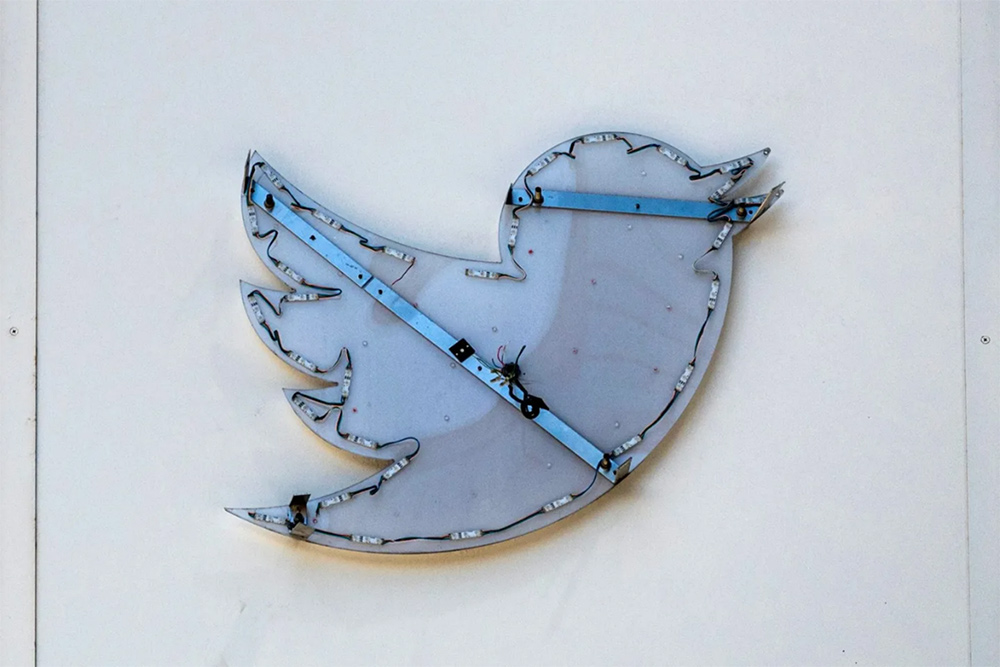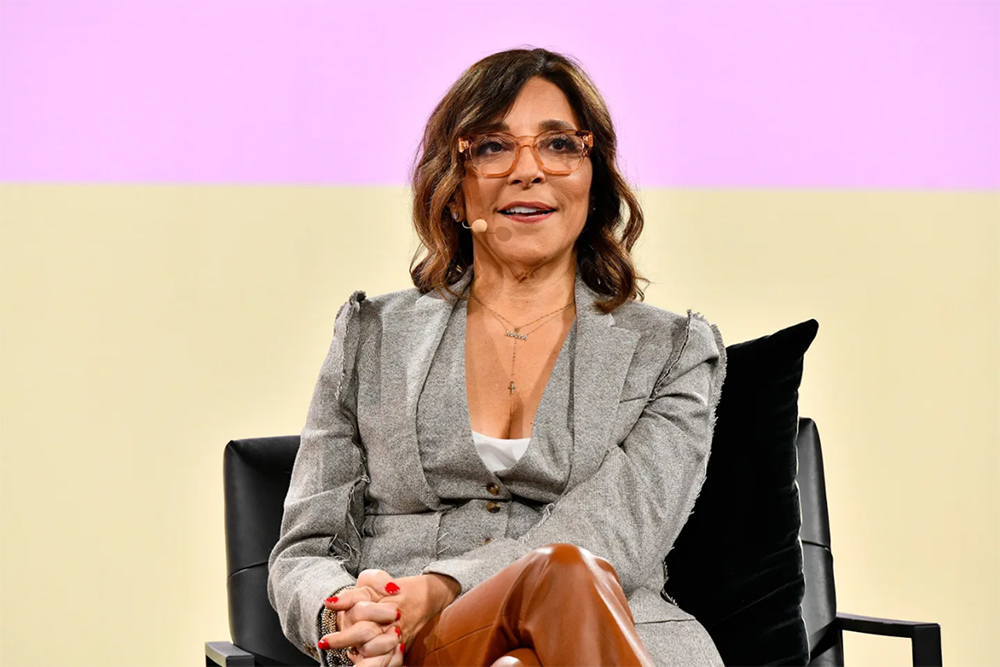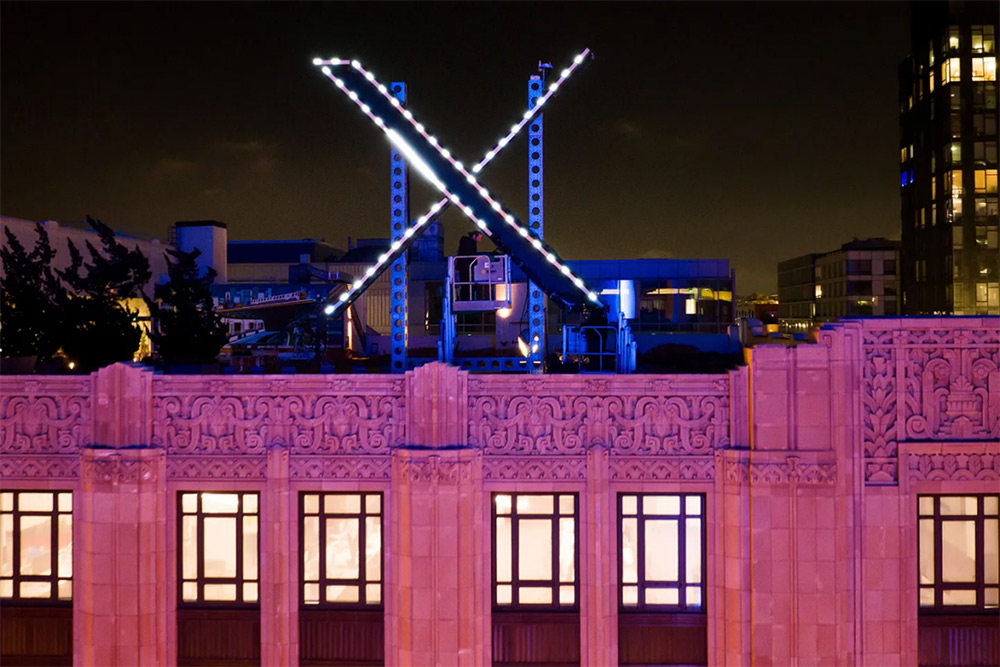
到目前为止,故事的大体情节已经广为人知:7,500名员工被裁掉75%;崇尚绝对的言论自由主义,欢迎被禁言用户重返平台,而同时仇恨言论和错误信息激增;一场广告危机,在推特(Twitter)的1,000家最大的广告客户里,有超过半数暂停投放广告;还有令人困惑的企业品牌重塑,用字面意义上的X品牌(Brand X)取代了推特和人们熟知的推文。
在整个过程中,戏剧性事件从未间断。特斯拉(Tesla)和太空探索技术公司(SpaceX)的首席执行官、世界首富埃隆·马斯克将征服推特定义为首先在异乎寻常的事件上进行创新。自从收购这家社交媒体公司以来,马斯克奇怪或有争议的举动不断。
时间会证明,马斯克以440亿美元收购推特,是会成为商学院关于如何重振一家公司,并引领其走向光明未来的案例研究,还是会成为放纵与傲慢如何迅速摧毁公司价值的经验教训。无论最终决断如何,亲历者的发言都为塑造故事关键时刻的环境、动机和行动提供了重要证词。他们揭示了马斯克备受争议的项目的内幕故事,以及各种矛盾的情绪和观点。
《财富》杂志采访了八位在推特马斯克化的关键时刻在场的人士。我们对大多数人的名字进行了匿名处理。为保证清晰和简洁,必要时,我们对他们的评论进行了编辑,除此之外,我们还在这本口述史里用他们的原话讲述了(第一年)马斯克管理下的推特的相关情况。
第一章
现在是埃隆的公司了
2022年10月27日,在收购完成的几分钟内,推特的高管团队就被马斯克解雇了。众所周知,几个小时前,马斯克抱着一个水槽走进推特总部大楼(“让它沉下去!”他在推特上发布的入场视频中开玩笑说)。对推特的员工而言,接下来的几周将是迷茫、希望、恐惧和混乱的混杂期——而且对成千上万的员工来说,在新任首席执行官上任仅仅几天之后,就将面临裁员。
最初的日子
“很多事情都是我们在推特上了解到的,对吧?马斯克出现在办公室、水槽事件、他在咖啡吧闲逛的那一刻。所有这些事情都进展得非常快,员工们都觉得,嗯,好吧,我想这就是现在发生的事情了。”——约尔·罗思,前信任与安全主管
“我们在Slack上有一个特斯拉频道,人们开始说一些愚话,例如‘哦,我们现在要买特斯拉了’之类的。但大家的共识是,大多数人并不开心。他们担心自己的工作。他们为自己的文化和环境担忧。只有极少数人感到兴奋。”——X公司员工1
“公司文化很快变得充满敌意。你不确定谁是盖世太保(秘密警察),谁不是,比如谁会因为你说了什么而向埃隆举报你。人们变得更加谨慎。”——前人力资源部员工
为裁员做好准备
“裁员当晚,没有人真正知道发生了什么,人们只是开始说‘我无法登录设备了。’这是即将发生的事情的预兆。”
“我只是在想,明天到底会怎样?我还有一份工作,还能够领到薪水,还可以推迟考虑下一步应该怎么做,这让我感到些许宽慰。但与此同时,这也很让人很震惊,也许有人因为这次经历而患上了创伤后应激障碍(PTSD),但肯定的是,人们受到了心灵创伤……这太疯狂了。从字面意义上讲,这就像在废墟中搜寻,试图找出谁还在办公室里,谁还在Slack上。”——前人力资源部员工
“甚至直到最后三天(我认为),我们都不知道到底有多少人;我们不知道他会在哪刻收手。我们不知道有多少人会被解雇。”——前高管
盲目行动
“那几天就像在收拾残局,因为我们不知道自己到底在做什么。我们不知道战略指令是什么。我们不知道应该把精力和预算集中在什么地方……我相信一些领导层对此略有了解,但这些都没有传递下去,因为他们可能也没有一个非常明确的方向。”——前人力资源部员工
“最后两周是我职业生涯中最不愉快的经历之一。我当然希望再也不要经历这样的事情。信息流完全停止了。”——前工程师1
第二章
生活在马斯克宇宙中
对那些在最初的大规模裁员潮中幸存下来的人而言,在推特工作的忙碌程度丝毫没有减轻。马斯克以善变著称,他坚持“硬核”的工作作风和削减成本,还有他可怕的“恶魔模式”,这些都渗透到了公司的方方面面。一些人看到了升职的机会,另一些人则学到了为马斯克工作的注意事项。
给埃隆留下深刻印象
“你已经能够看到人们像野蛮人一样,想方设法往上爬。这看起来就像很多人在拍马屁,提出一些非常不切实际的改变。这种情况现在还时有发生,但没有那么频繁了。最初的几个月,那简直太疯狂了。”——X公司员工1
“(马斯克)发了一封电子邮件,大意是‘我们需要寻找新项目。’就像在说,如果你有任何想法,就都可以发给我,他会对它们进行评估……有人说,让Vine(短视频鼻祖)回归吧……有人想让推特音乐(Twitter Music)回归。这些想法都愚蠢至极。在那段时间里,唯一的特别之处在于,基本上所有的埃隆信徒都想方设法在埃隆面前抬高自己的地位。”——前工程师2
对‘硬核’的崇拜
“我认为他不相信工作与生活的平衡。他自己都无法平衡工作和生活,所以他怎么相信工作与生活的平衡呢?”——前高管
“一切都变了。过去,人们常常在下午五点或四点就回家。现在,你会经常看到人们加班到很晚,尤其是在旧金山;旧金山的员工和他们的经理一样工作到很晚,或者如果埃隆在那里,他们的会议被推迟了,他们就必须待在那里。比如,在周三或周四,很多人都会工作到晚上九点或十点,甚至更晚。文化本身已经发生了翻天覆地的变化。人们更关心工作,但压力也更大。每当你做出改变,如果结果不理想,你就会想,哦,有人会因此被炒鱿鱼。你以前从来没有过这种感觉。你不必提心吊胆。”
“你只需要努力工作,编码,擅长编码,解决问题,速战速决。我认为这才是让一个人飞黄腾达的原因,你不需要别人告诉你应该怎么做。如果有人告诉你应该做什么,你可能早就已经完成了。”——X公司员工1
削减成本
“埃隆收购推特的一大好处是,我发现了以前日常工作中没有发现的事情。有很多事情就像, ‘为什么我们要为这项没有人使用的技术买单?’显然有很多合同人们已经忘记了,或者没有关注,这很有见地。”
“我确实认为,埃隆的到来让公司解决了很多不可告人的秘密,否则他们可能不会解决这些问题。”——前人力资源部员工
恶魔模式
“永远不要违背他的旨意。很少有人试图反驳他。如果他询问你不知道的事情,不要胡编乱造。就说你不知道,但下次你和他谈话或发电子邮件的时候你就会知道了,但永远不要试图蒙混过关。”——X公司员工1
“有一次,我坐在电话旁听他咆哮。让我感到非常有趣的是,在那一刻,他为自己的愤怒和愤慨辩解的理由是,推特对人类的未来有多么重要……在那一刻,我看到他并没有把这看作是一个商业问题、政策问题或战略问题,而是一个道德问题,在他的道德世界里,任何会阻碍推特成功的事情都不是商业问题,而是道德问题,在他看来,这使这种完全无法解释的不合理行为合理化了。”——约尔·罗思
“他确实不喜欢被别人指手画脚。他也确实不喜欢别人告诉他,他的想法是错的,尽管他承认自己错了。”——X公司员工1
“他自己就是一个恶霸,因为他曾经被霸凌过。他愤怒、痛苦、怨恨,对任何打他的人都会挥拳相向,因为这是他唯一知道的事情,对吧?”——前高管
第三章
新身份
从今年5月开始,马斯克采取了一些重大举措。也许是意识到自己能力的局限性,马斯克聘请了美国全国广播公司(NBC)的高管琳达·亚卡里诺担任首席执行官,希望可以重振公司的广告业务。他正式放弃了推特品牌及其蓝鸟标志,将该平台重新命名为X,并对产品进行了重大调整,例如取消推文标题,提供各种付费版本的服务。
新任首席执行官登场
“我对她抱有很大期望。我以为她会重振我们的广告业务,为公司营造更正常的环境,更频繁地更新信息……但她没有。我相信这两者都是埃隆造成的。”——X公司员工1

“我发现有趣的是,她显然是她所在领域的专家,而这正是推特能够利用的领域,比如与广告商建立良好关系,与媒体建立合作伙伴关系。”
“我真的看不出她和埃隆之间互相信任(这一点非常重要)。最起码你需要这种关系。如果你和公司领导之间缺乏信任,我不知道这如何行之有效。”——前高管
“[琳达·亚卡里诺]大概发过三封电子邮件。这些电子邮件都很随机,老实说,她听起来就像一个机器人……我不知道在埃隆那里,她表现如何,但对工程师来说,她好像不存在一样。”——X公司员工1
身份转变:从推特到X
“在与他会面时,我们绝对避免说推特或称之为推文。但我的意思是,积习难改。人们仍然称其为推文。也许不是称之为推特,但人们依旧称其为推文……很多人只是出于老习惯这么做。归根结底,在公司内部,所有东西仍旧被称为推特、推文、转发。只是外部标志被重新命名了,但要在内部准确地重新命名所有东西是不可能的。”——X公司员工1

“在大多数情况下,这只是被当作另一项我们无法掌控的任务。这个决定是在整个公司都不知道的情况下做出的,因此我们依然在更新所有提及推特、推文、转发等的内容。这是一个庞大的列表,随着我们发现的内容增加,这个列表还在不断扩大。”——X公司员工2
“我认为,如果你经常[说‘推文’和‘推特’],而且听起来像是故意的,[马斯克]就会有意见了。他称它们为帖子,他不会犯这种错误。”——X公司员工1
马斯克的产品愿景
“他是一个未来主义者。他对X应该是什么样子有自己的愿景。但是具体的细节,如何实现这一目标,可能需要大量的实验和很多人制定计划。”——前高管
“我们并没有真正采取任何措施来加速增长。我们有一个完整的团队在做这件事情。但现在,我们确实没有采取任何措施来吸引新客户。我们基本上只是利用现有的资源,并祈祷人们会来注册。我想这只是因为他在为自己开发应用程序。”
“[马斯克]经常谈到YouTube。他会说,看看YouTube,那就是我们应该拥有的视频。那是他谈论最多的公司。例如,每当我们提出任何与视频有关的建议时,他就会说,看看YouTube。”——X公司员工1
未来
“我不知道什么是万能应用程序,但我知道我们现在的产品很出色。我们需要更多的工程师。如果我们有更多的工程师,可以完成的事情就会很惊人,但以现有的员工人数,我们所能够取得的成就仍然令人印象深刻。我们今年所做的事情原本可能需要老推特公司花费数年时间才可以完成……以前至少需要六个月时间才能够完成的事情,我们在一两周内就完成了。”——X公司员工1
“就我目前的经验来看,几乎没有人对埃隆计划抱有坚定的信念。唯一的例外是那些被提拔/晋升的人,或者那些似乎是内部晋升的既得利益者。”——X公司员工2
“我认为,要么它会成为一家非常成功的埃隆公司,但会出现埃隆公司常见的问题,要么它最终会被出售……它破产的唯一途径是,如果埃隆能够以更便宜的价格收购它(这可以让他受益)。”——X公司员工1(财富中文网)
译者:中慧言-王芳
2023年7月,位于美国旧金山的推特总部的部分标志被拆除。
到目前为止,故事的大体情节已经广为人知:7,500名员工被裁掉75%;崇尚绝对的言论自由主义,欢迎被禁言用户重返平台,而同时仇恨言论和错误信息激增;一场广告危机,在推特(Twitter)的1,000家最大的广告客户里,有超过半数暂停投放广告;还有令人困惑的企业品牌重塑,用字面意义上的X品牌(Brand X)取代了推特和人们熟知的推文。
在整个过程中,戏剧性事件从未间断。特斯拉(Tesla)和太空探索技术公司(SpaceX)的首席执行官、世界首富埃隆·马斯克将征服推特定义为首先在异乎寻常的事件上进行创新。自从收购这家社交媒体公司以来,马斯克奇怪或有争议的举动不断。
时间会证明,马斯克以440亿美元收购推特,是会成为商学院关于如何重振一家公司,并引领其走向光明未来的案例研究,还是会成为放纵与傲慢如何迅速摧毁公司价值的经验教训。无论最终决断如何,亲历者的发言都为塑造故事关键时刻的环境、动机和行动提供了重要证词。他们揭示了马斯克备受争议的项目的内幕故事,以及各种矛盾的情绪和观点。
《财富》杂志采访了八位在推特马斯克化的关键时刻在场的人士。我们对大多数人的名字进行了匿名处理。为保证清晰和简洁,必要时,我们对他们的评论进行了编辑,除此之外,我们还在这本口述史里用他们的原话讲述了(第一年)马斯克管理下的推特的相关情况。
第一章
现在是埃隆的公司了
2022年10月27日,在收购完成的几分钟内,推特的高管团队就被马斯克解雇了。众所周知,几个小时前,马斯克抱着一个水槽走进推特总部大楼(“让它沉下去!”他在推特上发布的入场视频中开玩笑说)。对推特的员工而言,接下来的几周将是迷茫、希望、恐惧和混乱的混杂期——而且对成千上万的员工来说,在新任首席执行官上任仅仅几天之后,就将面临裁员。
最初的日子
“很多事情都是我们在推特上了解到的,对吧?马斯克出现在办公室、水槽事件、他在咖啡吧闲逛的那一刻。所有这些事情都进展得非常快,员工们都觉得,嗯,好吧,我想这就是现在发生的事情了。”——约尔·罗思,前信任与安全主管
“我们在Slack上有一个特斯拉频道,人们开始说一些愚话,例如‘哦,我们现在要买特斯拉了’之类的。但大家的共识是,大多数人并不开心。他们担心自己的工作。他们为自己的文化和环境担忧。只有极少数人感到兴奋。”——X公司员工1
“公司文化很快变得充满敌意。你不确定谁是盖世太保(秘密警察),谁不是,比如谁会因为你说了什么而向埃隆举报你。人们变得更加谨慎。”——前人力资源部员工
为裁员做好准备
“裁员当晚,没有人真正知道发生了什么,人们只是开始说‘我无法登录设备了。’这是即将发生的事情的预兆。”
“我只是在想,明天到底会怎样?我还有一份工作,还能够领到薪水,还可以推迟考虑下一步应该怎么做,这让我感到些许宽慰。但与此同时,这也很让人很震惊,也许有人因为这次经历而患上了创伤后应激障碍(PTSD),但肯定的是,人们受到了心灵创伤……这太疯狂了。从字面意义上讲,这就像在废墟中搜寻,试图找出谁还在办公室里,谁还在Slack上。”——前人力资源部员工
“甚至直到最后三天(我认为),我们都不知道到底有多少人;我们不知道他会在哪刻收手。我们不知道有多少人会被解雇。”——前高管
盲目行动
“那几天就像在收拾残局,因为我们不知道自己到底在做什么。我们不知道战略指令是什么。我们不知道应该把精力和预算集中在什么地方……我相信一些领导层对此略有了解,但这些都没有传递下去,因为他们可能也没有一个非常明确的方向。”——前人力资源部员工
“最后两周是我职业生涯中最不愉快的经历之一。我当然希望再也不要经历这样的事情。信息流完全停止了。”——前工程师1
第二章
生活在马斯克宇宙中
对那些在最初的大规模裁员潮中幸存下来的人而言,在推特工作的忙碌程度丝毫没有减轻。马斯克以善变著称,他坚持“硬核”的工作作风和削减成本,还有他可怕的“恶魔模式”,这些都渗透到了公司的方方面面。一些人看到了升职的机会,另一些人则学到了为马斯克工作的注意事项。
给埃隆留下深刻印象
“你已经能够看到人们像野蛮人一样,想方设法往上爬。这看起来就像很多人在拍马屁,提出一些非常不切实际的改变。这种情况现在还时有发生,但没有那么频繁了。最初的几个月,那简直太疯狂了。”——X公司员工1
“(马斯克)发了一封电子邮件,大意是‘我们需要寻找新项目。’就像在说,如果你有任何想法,就都可以发给我,他会对它们进行评估……有人说,让Vine(短视频鼻祖)回归吧……有人想让推特音乐(Twitter Music)回归。这些想法都愚蠢至极。在那段时间里,唯一的特别之处在于,基本上所有的埃隆信徒都想方设法在埃隆面前抬高自己的地位。”——前工程师2
对‘硬核’的崇拜
“我认为他不相信工作与生活的平衡。他自己都无法平衡工作和生活,所以他怎么相信工作与生活的平衡呢?”——前高管
“一切都变了。过去,人们常常在下午五点或四点就回家。现在,你会经常看到人们加班到很晚,尤其是在旧金山;旧金山的员工和他们的经理一样工作到很晚,或者如果埃隆在那里,他们的会议被推迟了,他们就必须待在那里。比如,在周三或周四,很多人都会工作到晚上九点或十点,甚至更晚。文化本身已经发生了翻天覆地的变化。人们更关心工作,但压力也更大。每当你做出改变,如果结果不理想,你就会想,哦,有人会因此被炒鱿鱼。你以前从来没有过这种感觉。你不必提心吊胆。”
“你只需要努力工作,编码,擅长编码,解决问题,速战速决。我认为这才是让一个人飞黄腾达的原因,你不需要别人告诉你应该怎么做。如果有人告诉你应该做什么,你可能早就已经完成了。”——X公司员工1
削减成本
“埃隆收购推特的一大好处是,我发现了以前日常工作中没有发现的事情。有很多事情就像, ‘为什么我们要为这项没有人使用的技术买单?’显然有很多合同人们已经忘记了,或者没有关注,这很有见地。”
“我确实认为,埃隆的到来让公司解决了很多不可告人的秘密,否则他们可能不会解决这些问题。”——前人力资源部员工
恶魔模式
“永远不要违背他的旨意。很少有人试图反驳他。如果他询问你不知道的事情,不要胡编乱造。就说你不知道,但下次你和他谈话或发电子邮件的时候你就会知道了,但永远不要试图蒙混过关。”——X公司员工1
“有一次,我坐在电话旁听他咆哮。让我感到非常有趣的是,在那一刻,他为自己的愤怒和愤慨辩解的理由是,推特对人类的未来有多么重要……在那一刻,我看到他并没有把这看作是一个商业问题、政策问题或战略问题,而是一个道德问题,在他的道德世界里,任何会阻碍推特成功的事情都不是商业问题,而是道德问题,在他看来,这使这种完全无法解释的不合理行为合理化了。”——约尔·罗思
“他确实不喜欢被别人指手画脚。他也确实不喜欢别人告诉他,他的想法是错的,尽管他承认自己错了。”——X公司员工1
“他自己就是一个恶霸,因为他曾经被霸凌过。他愤怒、痛苦、怨恨,对任何打他的人都会挥拳相向,因为这是他唯一知道的事情,对吧?”——前高管
第三章
新身份
从今年5月开始,马斯克采取了一些重大举措。也许是意识到自己能力的局限性,马斯克聘请了美国全国广播公司(NBC)的高管琳达·亚卡里诺担任首席执行官,希望可以重振公司的广告业务。他正式放弃了推特品牌及其蓝鸟标志,将该平台重新命名为X,并对产品进行了重大调整,例如取消推文标题,提供各种付费版本的服务。
新任首席执行官登场
“我对她抱有很大期望。我以为她会重振我们的广告业务,为公司营造更正常的环境,更频繁地更新信息……但她没有。我相信这两者都是埃隆造成的。”——X公司员工1
今年5月,马斯克聘请美国全国广播公司的高管琳达·亚卡里诺(上图)担任推特(现称为X)的首席执行官,并拿回广告收入。
“我发现有趣的是,她显然是她所在领域的专家,而这正是推特能够利用的领域,比如与广告商建立良好关系,与媒体建立合作伙伴关系。”
“我真的看不出她和埃隆之间互相信任(这一点非常重要)。最起码你需要这种关系。如果你和公司领导之间缺乏信任,我不知道这如何行之有效。”——前高管
“[琳达·亚卡里诺]大概发过三封电子邮件。这些电子邮件都很随机,老实说,她听起来就像一个机器人……我不知道在埃隆那里,她表现如何,但对工程师来说,她好像不存在一样。”——X公司员工1
身份转变:从推特到X
“在与他会面时,我们绝对避免说推特或称之为推文。但我的意思是,积习难改。人们仍然称其为推文。也许不是称之为推特,但人们依旧称其为推文……很多人只是出于老习惯这么做。归根结底,在公司内部,所有东西仍旧被称为推特、推文、转发。只是外部标志被重新命名了,但要在内部准确地重新命名所有东西是不可能的。”——X公司员工1
推特在今年7月正式更名为X后,在该公司旧金山总部的屋顶上曾经短暂地安装过一个巨大的发光标志X。
“在大多数情况下,这只是被当作另一项我们无法掌控的任务。这个决定是在整个公司都不知道的情况下做出的,因此我们依然在更新所有提及推特、推文、转发等的内容。这是一个庞大的列表,随着我们发现的内容增加,这个列表还在不断扩大。”——X公司员工2
“我认为,如果你经常[说‘推文’和‘推特’],而且听起来像是故意的,[马斯克]就会有意见了。他称它们为帖子,他不会犯这种错误。”——X公司员工1
马斯克的产品愿景
“他是一个未来主义者。他对X应该是什么样子有自己的愿景。但是具体的细节,如何实现这一目标,可能需要大量的实验和很多人制定计划。”——前高管
“我们并没有真正采取任何措施来加速增长。我们有一个完整的团队在做这件事情。但现在,我们确实没有采取任何措施来吸引新客户。我们基本上只是利用现有的资源,并祈祷人们会来注册。我想这只是因为他在为自己开发应用程序。”
“[马斯克]经常谈到YouTube。他会说,看看YouTube,那就是我们应该拥有的视频。那是他谈论最多的公司。例如,每当我们提出任何与视频有关的建议时,他就会说,看看YouTube。”——X公司员工1
未来
“我不知道什么是万能应用程序,但我知道我们现在的产品很出色。我们需要更多的工程师。如果我们有更多的工程师,可以完成的事情就会很惊人,但以现有的员工人数,我们所能够取得的成就仍然令人印象深刻。我们今年所做的事情原本可能需要老推特公司花费数年时间才可以完成……以前至少需要六个月时间才能够完成的事情,我们在一两周内就完成了。”——X公司员工1
“就我目前的经验来看,几乎没有人对埃隆计划抱有坚定的信念。唯一的例外是那些被提拔/晋升的人,或者那些似乎是内部晋升的既得利益者。”——X公司员工2
“我认为,要么它会成为一家非常成功的埃隆公司,但会出现埃隆公司常见的问题,要么它最终会被出售……它破产的唯一途径是,如果埃隆能够以更便宜的价格收购它(这可以让他受益)。”——X公司员工1(财富中文网)
译者:中慧言-王芳
By now, the outlines of the story are well-known: a staff of 7,500 slashed by 75%; a free-speech absolutism that welcomed banned users back to the platform, along with a surge of hate speech and misinformation; an advertising crisis in which more than half of Twitter’s top 1,000 advertisers shut their purses; and a confounding corporate rebrand that replaced Twitter and the familiar tweet with a literal Brand X.
And throughout it all, nonstop drama. Elon Musk, the CEO of Tesla and SpaceX, and the world’s richest person, has defined his conquest of Twitter by innovating on spectacle above all. With each curious or controversial move since acquiring the social media company, Musk’s most successful feat has been forcing the world to pay attention.
Time will tell if Musk’s $44 billion takeover will become a business-school case study in how to rejuvenate a company and pivot it toward a brighter future, or a lesson in how rapidly unrestrained hubris can destroy value. Whatever the eventual verdict, the voices of those who experienced the events firsthand offer crucial testimony about the circumstances, motivations, and actions that shaped the story’s critical moments. And they paint a revealing portrait of life inside Musk’s controversial project, with all the conflicting emotions and perspectives.
Fortune interviewed eight people who were present during key moments of Twitter’s Muskification. We’ve anonymized most names but tried to distinguish individual speakers. We’ve edited their comments for clarity or length when necessary, but otherwise present their accounts in their own words in this oral history of the first year at Twitter under the Musk regime.
Chapter 1
It’s Elon’s company now
Within minutes of the acquisition closing on Oct. 27, 2022, Twitter’s senior leadership team is fired by Musk, who famously marched into company headquarters hours earlier carrying a sink (“Let that sink in!” he joked in the video he tweeted of his entrance). For Twitter staffers, the next few weeks will be a blurry jumble of confusion, hope, fear, chaos—and for thousands, after just a few days under the new regime, layoffs.
The first days
“So much of what was going on we learned as it happened on the service, right? Musk showing up at the office, the sink thing, that moment where he was milling around the coffee bar. All of these were things that moved exceptionally quickly, and employees were just sort of like, huh, okay, I guess that’s happening now.” —Yoel Roth, former head of trust and safety
“We had a Tesla channel in Slack, and people were starting to say dumb things like, ‘Oh, we’re gonna get Teslas now’ or whatever. But the consensus was that most people weren’t happy. They were worried for their jobs. They were worried for their culture and the environment. And just a very, very low minority were excited.” —X employee 1
“The culture became hostile fast. You weren’t sure who was part of the gestapo and who wasn’t, like who was reporting you to Elon for saying X, Y, and Z. People became a lot more guarded.” —Former HR employee
Brace for layoffs
“The night of the layoffs, no one really had any idea what was going on, and people were just starting to say, like, ‘I’m locked out of my machine.’ It was such a harbinger of things to come. It showed—not just from an attitude perspective and the potential callousness of the new leadership—but it was also just the chaos of it.
“I was just thinking, what the hell is tomorrow going to be? It was a mix of minor relief that I still had a job, I still was going to get a paycheck, I could delay figuring out what the hell to do next. But at the same time, it was also like shock … maybe there is PTSD from this experience, but it’s like, there was trauma for sure … It was just crazy. Literally, it was like searching through the wreckage, trying to see who’s here physically in the office and who is actually still online on Slack.” —Former HR employee
“Even up until the last, I would say, three days, we didn’t actually know exactly how many people; we didn’t know where he was going to cut the line. We didn’t know how many people were going to be let go.” —Former executive
Flying blind
“It was like picking up the pieces for a few days because we didn’t know what the hell we were doing. We didn’t know what the strategic directive was. We didn’t know where we were supposed to focus our energy and our budget … I’m sure some of the leadership had a small sense of that, but none of that trickled down because they probably didn’t have a very clear direction either.” —Former HR employee
“The last two weeks were some of the most unpleasant experiences I think I’ve ever had in my career. I certainly hope I never go through anything like that again. The flow of information just simply stopped.” —Former engineer 1
Chapter 2
Life in the Muskverse
For those who survived the initial wave of mass layoffs, working at Twitter did not get any less hectic. Musk’s famously mercurial nature, his insistence on a “hard-core” work ethos and on cost cutting, and his dreaded “demon mode” seeped into every aspect of the organization. Some saw an opportunity to try to rise through the ranks; others learned the dos and don’ts of working for Musk.
Impressing Elon
“You could already see people being savages, trying to climb up the ladders. That looked like a lot of people literally bootlicking, proposing changes that were very, very unrealistic. You still see that every now and then, but not as often. The first few months, it was crazy.” —X employee 1
“[Musk] sent out an email that was like, ‘We need to find new projects.’ Like, if you have any ideas, send them my way and Elon will evaluate them … Somebody was like, let’s bring back Vine … Somebody wanted to bring back Twitter Music. Just stupid shit. And it was a period where the only thing that was special about it was basically all of the Elon believers who were trying to figure out how to pump their status with him. And so it was the easiest things they could find, like, ‘Oh, well, we have all the Vine videos. Let’s bring Vine back.’” —Former engineer 2
The cult of “hard-core”
“I think he doesn’t believe in work-life balance. He himself doesn’t have work-life balance, so why would he?” —Former executive
“Everything has changed. People used to go home at like five or four, whatever. You constantly, constantly see people staying late, especially in S.F.; S.F. people stay as late as their managers, or if Elon’s there and their meeting gets pushed, and they have to stay there. Like, on Wednesdays or Thursdays, a lot of people stay there till nine or 10 or even later. The culture itself has changed drastically. People care more about the work, but they also stress more about it. Whenever you make a change, and it’s not good, you’re like, oh, someone’s gonna get fired over it. You never had that before. You didn’t have to look over your shoulder.
“You just need to work hard and code and be good at coding and solving problems and putting fires out fast. I think that’s what would make someone thrive more … You don’t need people to tell you what to do. If someone tells you what to do, you probably should have already done it.” —X employee 1
Cost cutting
“One of the silver linings to the Elon takeover is I got to see things that I wouldn’t have seen in my day-to-day job previously. And there were a lot of things where it was like, ‘Why are we paying for this technology that no one at the company uses?’ There were clearly a lot of contracts that people had lost track of or weren’t looking at, and that was insightful.
“I do think that Elon arriving caused the company to address a lot of skeletons that were in the closet that I don’t think they would have addressed otherwise.” —Former HR employee
Demon mode
“Never go against his word. People rarely try to contradict him. And if he asks something you don’t know, don’t make shit up. Just say you don’t know, but you will find out next time you talk to him or send it over an email, but never try to bullshit your way out of a question.” —X employee 1
“At a certain point, I just sort of sat on the phone and listened to that rant. And what was really interesting to me was how in that moment, his justification for his anger and his outrage was talking about how Twitter was important for the future of humanity … I saw in that moment that he didn’t view this as a business question or as a policy question or as a strategy question, but as a moral question, and in his moral universe, anything that would undermine Twitter’s success was not a business question but an ethics question, and it rationalized this kind of totally inexplicable unjustifiable behavior, in his mind.” —Yoel Roth
“He really doesn’t like being told what to do. He really doesn’t like to be told that something he thinks is wrong, though he does admit when he’s wrong.” —X employee 1
“He is a bully himself because he was bullied. He is angry and bitter and resentful and goes out swinging at anybody that punches at him because that’s the only thing he knows, right?” —Former executive
Chapter 3
A new identity
Beginning in May, Musk made some of his biggest moves. Perhaps recognizing the limits of his capabilities, Musk hired NBC executive Linda Yaccarino to serve as CEO and hopefully revive the company’s ad business. He officially killed the Twitter brand, along with its bird logo, and rechristened the platform as X, and he made major product changes such as eliminating headlines on tweets and offering various paid versions of the service.
Enter Linda Yaccarino, your new CEO
“I was very hopeful. I thought she would revive the advertising business we had and would bring more of a regular company environment with more frequent updates … She hasn’t. And I believe the reason for both of those is Elon.” —X employee 1
“The thing that I found interesting was she was obviously an expert in her field, and it was a field that Twitter could use, like having good relationships with advertisers and building media partnerships.
“I don’t really see something—that would be very important—which is a trusted relationship there between her and Elon. At a bare minimum you need that. If you don’t have trust between the person you’re working for, the leader of the company, I don’t see how that can work.” —Former executive
“[Linda Yaccarino has] sent, like, three emails. And they’ve all been very random, and she sounds like a bot honestly … I don’t know how she’s doing for the other side, but for engineers, she’s not really there.” —X employee 1
Identity change: From Twitter to X
“We absolutely avoid saying Twitter or calling them tweets in meetings with him. But I mean, old habits die hard. People still call them tweets. Maybe not Twitter, but people still call them tweets for sure … a lot of people just do it out of old habit. Because at the end of the day, internally, everything’s still called Twitter, tweets, retweets. It’s just the outside stuff that’s been renamed, but it would be impossible to rename everything internally correctly.” —X employee 1
“For the most part it’s just been treated as another task that is out of our hands. The decision was made to change without letting the entire company know, so we are still in progress updating any and all references to Twitter, tweet, retweet, etc. It’s a large list and continues to grow as we find more.” —X employee 2
“I assume that if you [say “tweets” and “Twitter”] constantly and it sounds like it’s on purpose, [Musk] is gonna say something. But he for sure calls them posts; he does not make that mistake.” —X employee 1
Musk’s product vision
“He’s a futurist. He has a vision of what this thing needs to look like. But the details, how you’re gonna get there, that could be a lot of experimentation and a lot of people figuring out a plan.” —Former executive
“We haven’t really done anything to accelerate growth. We have a full team for that. But right now, we’re really not doing anything to attract new customers. We’re pretty much just working with what we have and crossing our fingers that people are signing up. I think it’s just because he’s building the app for himself.
“[Musk] talks a lot about YouTube. He basically says look at YouTube, and that’s what we should have for video. That’s his most talked-about company. Like, whenever we propose anything video-related, he’s like, look at YouTube.” —X employee 1
The future
“I don’t know about the everything app. But I do know that the product we have now—it’s good. We could use more engineers. If we had more engineers, it would be amazing the things that we would be able to do, but it’s still very impressive what we’re able to achieve with the number of people that we have. The things that we’ve done this year would have taken old Twitter multiple years … Something that would have taken at least six months before, we just did in a week or two.” —X employee 1
“There is little to no strong belief in the Elon plan from what I have experienced thus far. The exception being those who have been elevated/promoted or seem to have a vested interest in rising within the ranks internally.” —X employee 2
“I think it will either be a very successful Elon company, with usual Elon-company problems, or it’ll eventually be sold off … The only way it would go bankrupt is if it benefited him to buy it cheaper.” —X employee 1






